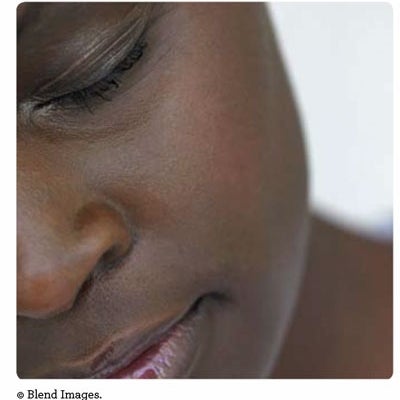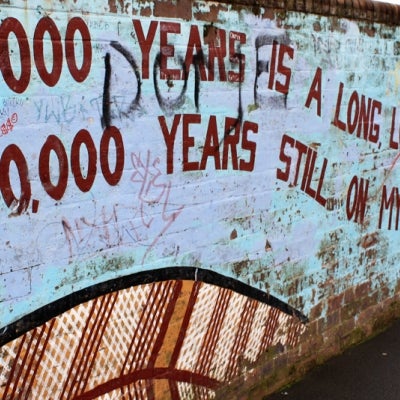Refine results
-
Disability Rights14 December 2012Speech
Disability images and human reality
The electronic mass media are among the most powerful influences on people's lives today. You who work in the media shape our view of the world and of each other. Through media exposure we get access to a vast range of life situations that go far beyond what any one of us could personally experience. -
Commission – General14 December 2012Opinion piece
Bystanders must join fight against bullying (2011)
The following opinion pieces have been published by the President and Commissioners. Reproduction of the opinion pieces must include reference to where the opinion piece was originally published. -
Legal14 December 2012Webpage
Temporary exemptions under the Sex Discrimination Act 1984 (Cth)
Section 44 of the Sex Discrimination Act 1984 (Cth) (the Sex Discrimination Act) gives the Australian Human Rights Commission (the Commission) the power to grant temporary exemptions from certain provisions of the Sex Discrimination Act. Section 44 of the Sex Discrimination Act provides as follows. -
Disability Rights14 December 2012Speech
Speech - iPhone or Trombone: Age or Disability Don't Have to be Barriers (2012)
Alan used to work as a civil engineer, and is a trombone player with two orchestras and two bands. He has competed in the Australian Band Championships for the last three years. He sold his soils laboratory to 'retire', and has never looked back. He still works part-time in soil testing, but as well as trombone playing he is a volunteer in a Rotary shop, walks 30-40 kilometers weekly, won a… -
Commission – General14 December 2012Speech
20 Years of Mandatory Immigration Detention: the imperative for community-based arrangements for those who seek Australia’s protection
Thank you for your kind introduction. I wish to start today by acknowledging the Kaurna People of the Adelaide Plains, the traditional owners of the land on which we are meeting. On behalf of the Australian Human Rights Commission, I pay my respects to their elders past and present. -
Aboriginal and Torres Strait Islander Social Justice14 December 2012Speech
Essentials for Social Justice: Reform
Between December 2007 and April 2008 the Aboriginal and Torres Strait Islander Social Justice Commissioner, Tom Calma, will deliver a series of key speeches setting out an agenda for change in Indigenous affairs. -
14 December 2012Book page
Let's talk about rights: A guide to help young people have their say about human rights in Australia (2009)
This guide has been produced by the Australian Human Rights Commission to help you participate in the Australian Government’s National Human Rights Consultation. -
14 December 2012Book page
Isma-Listen: Eliminating prejudice against Arab and Muslim Australians
The meeting was chaired by the Deputy South Australian Equal Opportunity Commissioner, Ms Anne Burgess and facilitated by Omeima Sukkarieh, Human Rights and Equal Opportunity Commission (notes). It was attended by 21 invited participants. -
14 December 2012Book page
Commission Website: National Inquiry into Children in Immigration Detention
Australia ratified its commitment to the Convention of the Rights of the Child in 1989. Australia has also committed itself to other human rights standards such as the Refugee Convention. In order to fulfil these obligations and on pure humanitarian grounds, it is imperative that children in detention are afforded these rights. -
Children's Rights20 November 2014Speech
Children's Rights in a Changing World
Megan MitchellNational Children's CommissionerAustralian Human Rights Commission Association of Children's Welfare Agencies Conference 201420 August 2014 Check Against Delivery Introduction Thank you, Stephen, and good afternoon everyone. Can I start by acknowledging the traditional owners of the land on which we are meeting today, and paying my respects to their elders past and present. I’d… -
Race Discrimination14 December 2012Project

In our own words - African Australians: A review of human rights and social inclusion issues (2010)
In 2007, the former Race Discrimination Commissioner, Tom Calma, had a vision to develop a human rights initiative based on the experiences of African Australians, to inform future policy and programs. -
14 December 2012Book page
Employment and Training: African Australians - Compendium (2010)
For migrant and refugee job seekers, finding paid work is both a key indicator and a major determinant of successful settlement. Employment is also a crucial area of social and economic participation. -
Disability Rights18 March 2013Speech
Australian Association of Graduate Employers Conference (2012)
Australian Association of Graduate Employers Conference Graeme Innes AMDisability Discrimination CommissionerAustralian Human Rights Commission Friday 16 November 2012 I acknowledge the traditional owners of the land on which we meet today. Can you - as an employer - discriminate in favour of people with disability? The answer is a resounding yes. The race and sex discrimination acts deal… -
Rights and Freedoms14 December 2012Webpage
Human Rights: Discrimination in Employment on Basis of Criminal Record
Australians who have a criminal record often face significant barriers to full participation in the Australian community. Trying to find a job is one of the areas of greatest difficulty for former offenders. This discussion paper explores one potential barrier to employment: discrimination in the workplace on the basis of criminal record. -
Rights and Freedoms8 February 2016Opinion piece
Another 'aberration' shows that 18C is the problem and must be changed
State and federal governments should reform laws that make offensive acts unlawful and refocus them on protecting free speech and stopping workplace and public harassment. This week a news story broke about a complaint made under section 18C of the Racial Discrimination Act by a Queensland University of Technology employee. Section 18C makes it unlawful to "offend, insult, humiliate or… -
Race Discrimination17 July 2015Publication
National Anti-racism Strategy Evaluation 2015
The National Anti-Racism Strategy was developed to help people to understand what racism is and why it is a problem. And it was about empowering people to prevent racism from happening and to reduce it in their communities. Almost three years on from its launch in August 2012, we can report on the Strategy’s success. But we do so in the knowledge that more remains to be done. -
Rights and Freedoms14 December 2012Speech
"HUMAN RIGHTS - A CHALLENGE FOR AUSTRALIA.": Dr Sev Ozdowski (2002)
Allow me to start in the customary way. I would like to acknowledge the Ngunnawal people who are the traditional custodians of the land we are meeting at. Thank you for your invitation. -
16 May 2013Book page
Chapter 2: Attraction
View Chapter 2 as PDF View Chapter 2 as Word Strategies to attract more women to consider and apply for opportunities within male-dominated industriesThere is a skills shortage in Australia and 45% of Australian employers are having difficulty filling key positions in their organisations. Employers have the most difficulty finding skilled trades people and engineers, both of which have… -
Disability Rights14 December 2012Speech
6th National Deafblind Conference
Almost every day there seems to be some new development in information and communications technology. Technologies which did not exist a few years ago are now worth many billions of dollars each year in economic activity. -
Aboriginal and Torres Strait Islander Social Justice8 May 2014Project

The Declaration dialogues
If we are serious about implementing the Declaration on the Rights of Indigenous Peoples, an overarching policy framework based on human rights standards is essential to ensuring a holistic approach that addresses the needs and priorities identified by Aboriginal and Torres Strait Islander peoples and communities. A national conversation progressed through a series of dialogues was conducted…
